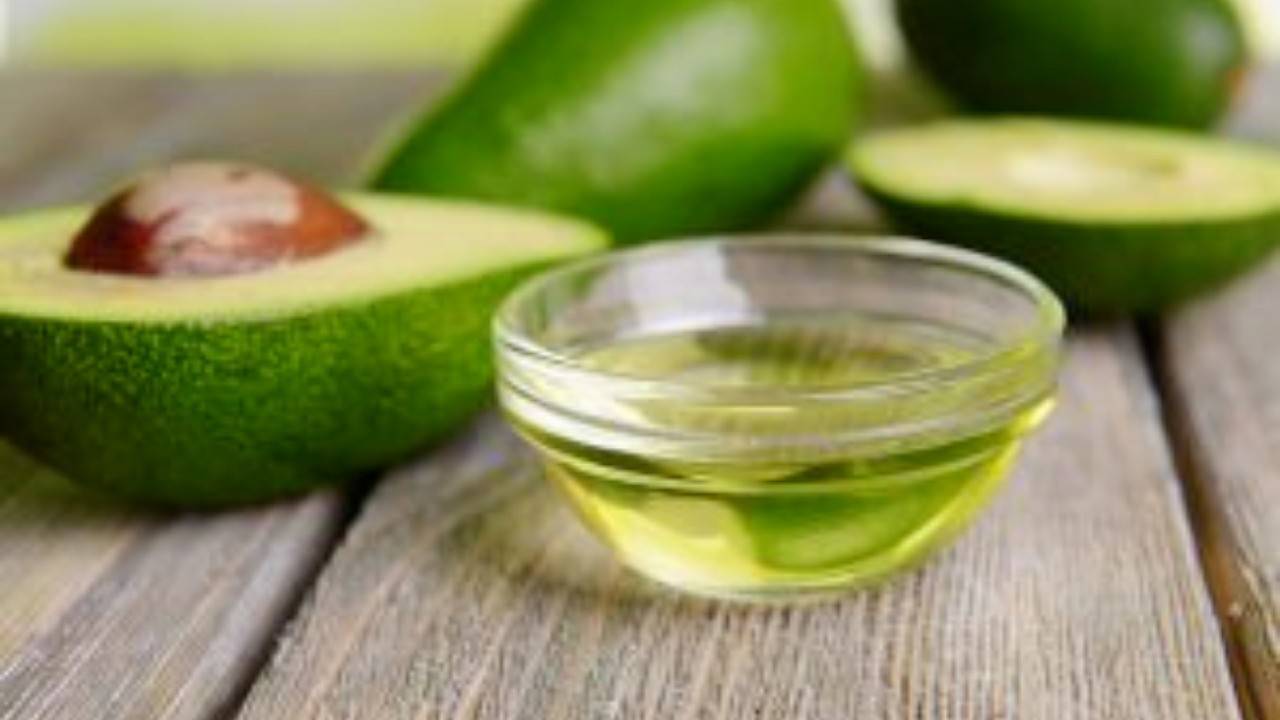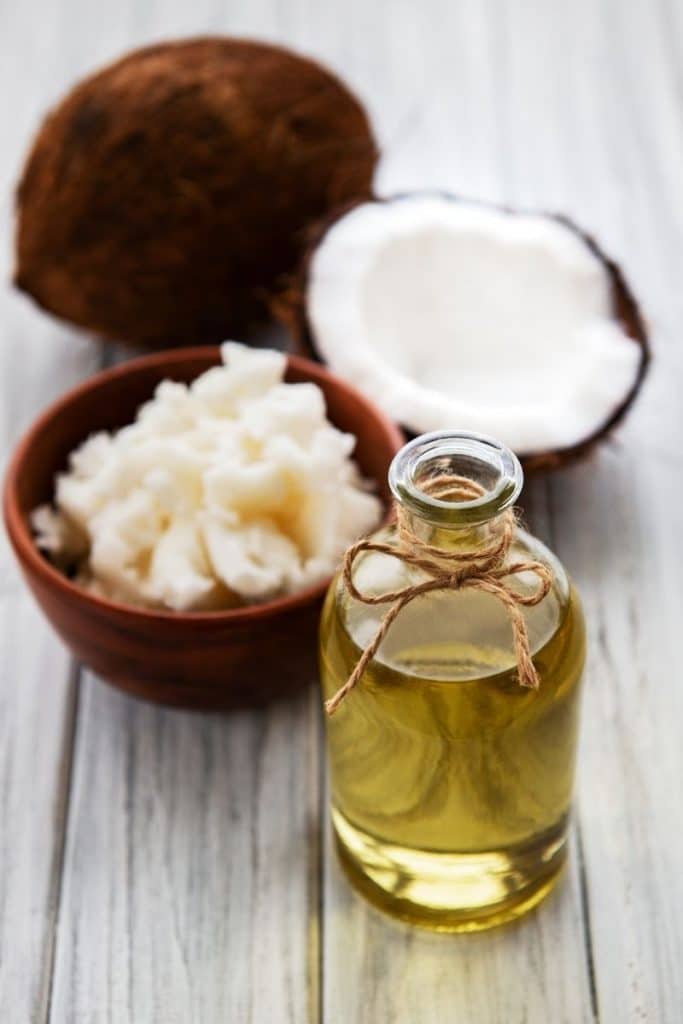
Avocado vs coconut oil: Which oil is better for you?
There are so many options for oils to use in your kitchen. I often get questions about which is the healthiest oil to cook with.
Fat is necessary for many body functions, including the absorption of fat-soluble vitamins, and healthy hair and skin. Fat also improves the taste of foods and satisfies and keeps us full for longer.
Avocado and coconut oils are both very popular right now. There are lots of factors to consider when comparing these two oils to determine which is the healthiest fat source. From nutritional content to environmental impact, flavour and smoke point.
So in this blog, I’ll break it all down and compare avocado oil vs coconut oil to help you choose the best oil for your kitchen.
So let’s dive in!
Avocado oil:
How is it produced?
Avocado oil is pressed from the fruit of avocados, unlike most oils that come from seeds. The avocado pulp or flesh contains 60% fat.
There are different types of avocados. But most of the avocado oil we consume in North America comes from Hass avocados and is produced in Mexico.
What does avocado oil taste like?
Avocado oil is mild-flavoured and varies in colour from light yellow to emerald green. This is one of my favourite things about avocado oil. You can add it to any dish or baking and its neutral flavour won’t overpower the taste (unlike extra-virgin olive oil, for example).
Types of avocado oil
Extra virgin avocado oil
“Extra virgin” avocado oil is made from high-quality fruit. It’s extracted with mechanical methods (instead of using solvents) with a temperature below 50 °C.
Virgin avocado oil
“Virgin” avocado oil can be made with lower quality avocados (with small areas of spoilage). It’s also extracted by mechanical methods with a temperature below 50 ° C.
Cold-pressed avocado oil
You might also hear virgin or extra-virgin oil called “cold-pressed avocado oil.” This refers to the extraction of the oil without heat (<50°C).
It’s an emerald green colour due to the carotenoids and chlorophyll that remain in the oil.
Refined avocado oil
For refined avocado oil, the quality of avocado isn’t important. In production, this oil is a bleached and deodorized oil. This will be the lightest coloured oil.
Sometimes it’s called “pure avocado oil.” This means it’s not mixed with other oils.
Cooking with Avocado oil
One big benefit of avocado oil is that it has a higher smoke point than most oils. Once the oil reaches its smoke point, it will release smoke and will start to decompose and produce unhealthy trans fats.
This oil won’t smoke until about 520 degrees Fahrenheit. For comparison, extra virgin olive oil smokes at a lower 375 degrees. This makes avocado oil great for high-temperature cooking like stir-frying.
Use it in your kitchen for baking, frying, BBQing, salad dressings, or for dipping your baguette. I get my giant bottles of “pure” avocado oil at Cost-co for a fraction of the price of smaller bottles at other stores.
If you’re feeding little ones, one of my favourite muffin recipes uses avocado. Check out my Avocado Blueberry Mini Muffins here.
Nutrition Facts
1 Tbsp of avocado oil contains:
124 calories
0g protein
14g fat
9.88g mounsaturated fat
1.89g polyunsaturated fat
1.62g saturated fat
0g carbohydrate
Negligible vitamins and minerals
The main type of monounsaturated fat in avocados is oleic acid. The fatty acid profile is similar to olive oil.
The main antioxidant in avocado oil are tocopherols (forms of vitamin E).
Other antioxidants present include chlorophylls and carotenoids like lutein.
Virgin, extra-virgin avocado oil that is cold-pressed also contains phytosterols. These plant sterols in avocado oil are heart-healthy.
Health benefits of avocado oil
Avocado oil has an even higher percentage (76%) of healthy monounsaturated fats than olive oil. The Medditerranead Diet this type of fatty acid famous. This type of fat is heart-healthy as it lowerd “bad” LDL cholesterol.
A study in 13 healthy adults tested a high fat/high-calorie meal containing either butter or avocado oil. After the meal with avocado oil, improved insulin, blood sugar, cholesterol, triglycerides, and inflammatory markers were improved compared to the butter meal.
Another reason why high levels of monounsaturated fats are healthy is that they are, by default, lower in omega-6 polyunsaturated fats. Most vegetable oils are high in omega-6 fats. High amounts of omega-6 fats can promote inflammation, which is linked to heart disease, cancer, and diabetes.
Besides the healthy fats, avocados are high in Vitamin E and carotenoids. Among other roles in our body, Vitamin E serves as an antioxidant. It protects our body cells from free radical damage.
Carotenoids are another type of antioxidant present. The most prevalent one in avocados is lutein. Lutein promotes eye health by fighting against macular degeneration.
Environmental impact
One concern about avocado oil is that it needs specific weather conditions to grow well. This includes lots of water. With limited water in high avocado-producing California, perhaps growing avocados shouldn’t be a priority for water use!
Also, in other areas such as Mexico, the popularity of avocados growth has been expanding, causing deforestation.
Coconut oil:
How is it produced?
Coconut oil is made by pressing the flesh of coconuts. The Philippines is the highest producer of coconut products.
What does it taste like?
My favourite thing about coconut oil is its flavour! I love using it in Thai dishes and homemade cookie recipes to replace butter because of its coconut flavour.
Virgin coconut oil will have a stronger flavour than refined.
Types of coconut oil
What is refined coconut oil?
Refined coconut oil is pressed from dried coconut meat. Sometimes chemical solvents (such as hexane) may be used to extract oil from the dried coconut.
The oil is then heated and deodorized to remove scent and taste. And then the oil “bleached” by filtering through clays to remove impurities. No actual bleach is used!
This oil is flavourless and odourless.
What is virgin coconut oil?
Virgin coconut oil is made from pressing fresh coconut meat. It’s separated into coconut oil and coconut milk.
Refined versions are bleached and deodorized while virgin oil is not. It will contain more antioxidants than the refined versions.
And you may hear the terms “virgin” and “extra-virgin” coconut oil. There’s no difference.
What is cold-pressed coconut oil?
Cold-pressed coconut oil is pressed from the coconut meat without the use of heat to retain more antioxidants.
The small amounts of antioxidants in virgin or cold-pressed oil likely don’t add too much to your overall diet though. Consume fruits and veggies for antioxidants, not oils…
What is fractionated coconut oil?
Fractionated coconut oil is made from regular coconut oil, but the longer chain fats are removed. The long-chain fats are solid at room temperature, so are simply removed from the oil when it’s warmed and then cooled.
The remaining fractionated oil is a liquid with no taste or odour.
Since fractionated coconut oil contains only Medium Chain Triglycerides, it should have the increased benefits of an “MCT oil.” These potentially include improved cognition in alzheimer’s patients, very modest reductions in body weight and enhanced athletic performance.
Using coconut oil in the kitchen
Saturated fat makes up the majority of fat in coconuts. So their oil is solid at room temperature. This makes it a bit more challenging to bake with than a liquid. I’ve melted coconut oil to add to baking and by the time I’ve mixed it into the batter, it’s all clumped up again!
The smoke point of refined coconut oil is 400-450 degrees F. This is the temperature at which the oil will start to burn and smoke. It also may denature and release free radicals, which aren’t healthy for our bodies.
Virgin coconut oil has a lower smoke point of 350 degrees Fahrenheit (F). This will be fine for most home cooking link sautéing but not for very high heat cooking like deep-frying.
Use refined oil if you don’t want a coconut smell or flavour, or are frying at higher temperatures.
Nutrition Facts for coconut oil
121 calories
0g protein
13.5g fat
0.861 monounsaturated fat
0.231g polyunsaturated fat
11.2g saturated fat
0g carbohydrate
Negligible vitamins and minerals
80-90% of the fat in coconut oil is saturated fat. This is why it’s solid at room temperature.
There are different types of saturated fat. The predominant one in coconut oil is lauric acid.
Health Benefits of Coconut Oil
A survey showed that 72% of consumers labelled coconut oil healthy. Compared to just 32% of nutritionists.
You’ve probably heard all of the amazing claims; from treating Alzheimer’s disease to diabetes and obesity. But do the claims hold up? Some might, but most don’t.
A 2020 meta-analysis of 16 research studies came to the conclusion that coconut oil was not significantly different when looking at markers of blood sugar, inflammation or body fat when compared to non-tropical vegetable oils.
For heart health, while coconut oil can increase healthy HDL cholesterol levels, it also raises the less desirable LDL cholesterol.
And the American Heart Association recommends: “strongly that lowering intake of saturated fat and replacing it with unsaturated fats, especially polyunsaturated fats, will lower the incidence of Cardiovascular Disease.”
The main fat in coconut oil is lauric acid. Breast milk contains lauric acid too. Lauric acid on its own may improve insulin resistance and function as an anti-cancer agent, This doesn’t necessarily translate directly to coconut oil having the same effects though.
One other potential health benefit of lauric acid is that it’s antibacterial. Perhaps this is why “oil pulling” with coconut oil for preventing cavities may actually work!
Topically, coconut oil can also treat atopic dermatitis, and prevent hair damage.
Weight loss studies are mixed.
One study from 2009 in 40 women compared a trial of a low-calorie diet and increased activity with the addition of either coconut or soybean oil. At the end of the trial, both groups had lost weight. But only the coconut group had a lower waist circumference. They also had higher HDL (healthy blood cholesterol) and the soybean oil group had lower HDL.
Yet a similar 2020 study on men, did not find these changes in weight or measurements.
What about the brain health claims? Such as the claim that coconut oil can help Alzheimer’s Disease symptoms.
Most of these claims are based on research using medium-chain triglycerides that are eight and 10 carbon chains in length. While the main saturated fat in coconut oil is a medium-chain triglyceride, it contains 12 carbon atoms. So this research shouldn’t be directly translated to coconut oil.
But there have been some small studies supplementing diets of Alzheimer’s patients with coconut oil. There have been improvements in language and orientation.
Another study found improvements in cognitive tests in patients with Alzheimer’s (especially women). This was after 40 ml/day of extra virgin coconut oil.
So perhaps coconut oil can benefit brain health, even if it doesn’t benefit heart health or encourage weight loss.
Final thoughts on Avocado Oil vs Coconut Oil
Overall, most of the health claims for the benefits of coconut oil are a bit shaky. Just because it’s saturated fat doesn’t mean you need to avoid it. But I’m not going to tell you to add it to your coffee every morning either.
I would suggest using coconut oil more in moderation. And not exclusively – mix in other fats and oils into your kitchen too. This is what I do.
But when comparing the nutritional profiles, ease of use and health benefits of avocado oil vs coconut oil – what’s the verdict?! Avocado oil is the WINNER.
Want to keep in touch? Sign up for my monthly newsletter below and grab my “15 quick family dinner ideas for busy nights” guide.
Jennifer House is a Registered Dietitian, author & mom of 3. From Baby-led weaning to picky eating and meal planning, she helps you to make feeding your family easier.
Founder of First Step Nutrition | Registered Dietitian Nutritionist
Jen believes raising happy, well-nourished eaters who have a healthy relationship with food doesn't have to be a battle! She is an author and speaker with 18 years of experience specializing in family nutrition and helps parents teach their kids to try new foods without yelling, tricking, or bribing.







Russell Boucher
Posted at 20:25h, 04 AugustTo the point information and very helpful interesting about the LDL & Coconut Oil as I use both Avocado and Coconut oil in our diet this information will affect which I use and for what & when. I find Avocado oil a bit more expensive. Life we only het one shot at we are what we eat.
Thanks Russell